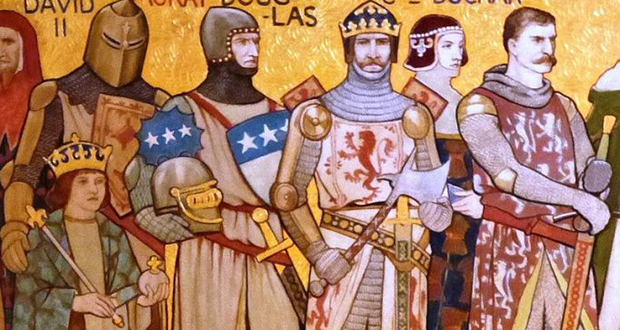1St Scholastica Day riot

In 1355, the town of Oxford and the students of Oxford University erupted in rioting (St Scholastica Day riot) for days because some students didn't like the beer they were served and threw a pint of beer at a tavern owner. The townsfolk eventually stormed the school where 63 students and 30 locals were killed.
2Musa I of Mali

Musa I of Mali was so wealthy when he made his pilgrimage to Mecca in 1324 that he had 12,000 slaves who each carried 4 pounds of gold and 80 camels that carried 50-300 pounds of gold. He gave away so much gold to the poor in the areas he visited that it devastated their economy and caused inflation.
3Scots invasion

In 1348, the Scots invaded the English because they were weakened by the plague. The Scots subsequently caught the plague themselves, went back to Scotland, and killed their own population.
4Bucket war

In 1325, the two Italian cities of Modena and Bologna had a war in which 2000 people died after a man stole a bucket from Bologna. Modena still has the bucket to this day.
5Scottish soldiers

In 1313, 60 Scottish soldiers disguised as cows seized control of the Roxburgh castle held by the English.
6Joan of Leeds

In 1318, Joan of Leeds, an English nun, who, bored with her monastic and enclosed life, at some point escaped from St Clement's by York priory to journey to Beverley, where she lived with a man. To escape, she feigned her death with a dummy that was buried in her place.
7Combat of the Thirty

In 1351, 30 knights from England and France fought a melee to decide which nation would inherit the Duchy of Brittany. The fight is hailed as a noble display of the ideas of Chivalry.
Latest FactRepublic Video:
15 Most Controversial & Costly Blunders in History
8King Edward II of England

In 1315, a small change in climate caused a great famine in Northern Europe which was so grim that one day even the King Edward II of England was left without bread.
9Richard Pudlicott

In 1303, a wool merchant named Richard Pudlicott stole £100,000 of valuables from King Edward I, equal to England's entire yearly tax income. Ministers discovered the robbery when priceless jewels began turning up in London brothels.
10Nicholas Flamel

In 1382, a French bookseller named Nicholas Flamel claimed to have transformed lead into gold after decoding an ancient book of alchemy. True or not, historical records show that Flamel did come into considerable wealth around this time, and donated his riches to charity.




